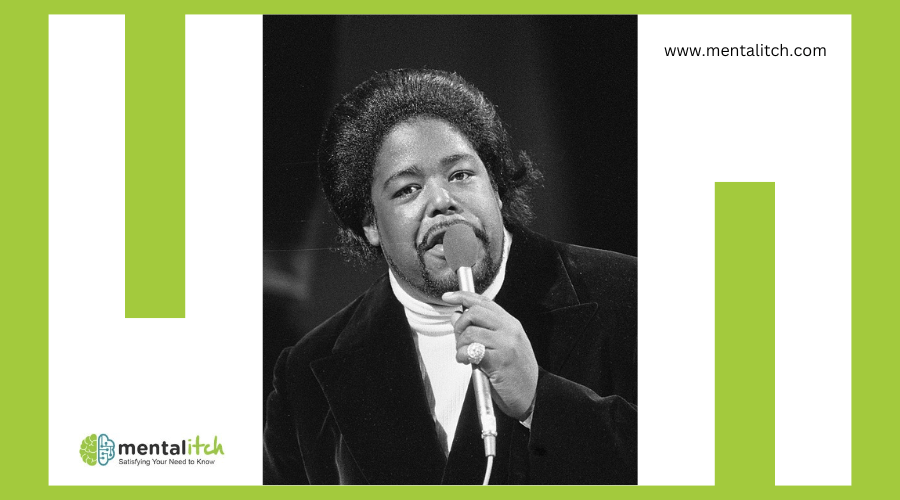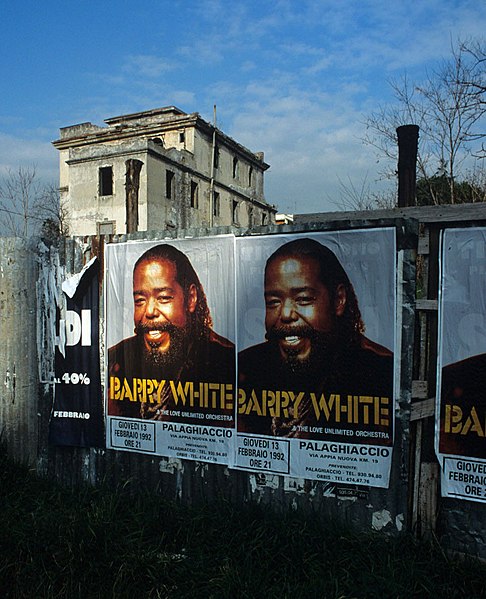Barry White’s deep, velvety voice and timeless love songs have left an indelible mark on the 1970s music scene. As a defining figure of the era, White’s smooth vocals and romantic lyrics captivated audiences. They solidified his place as a legend in the world of soul and R&B. This article delves into the lasting impact of Barry White’s contributions, exploring how his music continues to influence love songs and smooth vocals.
The Rise of Barry White
Barry White’s rise to fame began in the early 1970s with hits that showcased his distinctive baritone voice and lush musical arrangements. Iconic tracks like ‘Never, Never Gonna Give Ya Up’ and ‘You’re the First, the Last, My Everything’ dominated the airwaves. His collaboration with orchestrator Gene Page was crucial in crafting his unique sound.
Though his success wasn’t instant, once Barry broke through, his rise was unstoppable. Over seven years, he consistently released gold and platinum albums. His music, synonymous with romance and sensuality, deeply influenced the soul music industry.
Barry’s impact extended beyond hits; he popularized the California-soul style and left a lasting mark on the genre. His legacy defined an era and set the stage for future artists.
Signature Sound and Style
In the 1970s, Barry White captivated listeners with his deep, velvety voice, lush orchestral arrangements, and soulful grooves. His music exuded sensuality and romance. His songs’ sophisticated orchestral elements and irresistible rhythms created a unique sound that set him apart and influenced a generation of artists seeking to capture the same romantic essence.
Key elements contributing to Barry White’s signature sound included:
- Deep, velvety vocals: White’s voice was powerful and smooth, creating rich, emotional depth.
- Lush orchestral arrangements: Strings, horns, and other elements added grandeur and elegance.
- Soulful grooves: Funky bass lines and rhythmic percussion provided a solid foundation for his romantic melodies.
Iconic 70s Love Songs
Barry’s unforgettable hits like ‘Can’t Get Enough of Your Love, Babe’ and ‘I’m Gonna Love You Just a Little More Baby.’ epitomized the era of soul and R&B.
White’s songs featured lush orchestration and soulful arrangements, evoking profound emotions and setting a high standard for love ballads. The rich, layered instrumentation and soulful soundscapes added to their timeless appeal.
Today, Barry White’s 70s love songs continue to be celebrated for their enduring charm, reminding us of a time when music touched hearts and created lasting memories. His contributions to the era remain unparalleled.
Influence on Future Artists
Barry White’s influence on modern R&B is evident in the works of artists like Maxwell, D’Angelo, John Legend, and Alicia Keys. His smooth vocals and romantic style set a new standard for love songs in the 70s, inspiring a new era of romantic R&B ballads.
White’s blend of orchestral arrangements with soulful crooning has left a lasting impact, with echoes of his rich timbre and emotional delivery heard in today’s heartfelt ballads and smooth tracks. His music, evoking passion and sensuality, inspires contemporary artists aiming to capture the same essence.
Consider these examples of Barry White’s influence on modern R&B:
- Luther Vandross: White’s influence reflects his lush vocal style and emotional depth.
- Brian McKnight: Known for his smooth, romantic ballads that echo White’s timeless appeal.
- John Legend: His rich, soulful voice and orchestral arrangements honor White’s legacy.
Shaping Vocal Techniques
Barry White’s deep baritone voice and smooth delivery revolutionized R&B, inspiring countless future artists. His rich tones set a new standard for seductive and soulful singing, infusing his music with intimacy and romance.
Growing up in South Central, he developed a distinctive baritone partly due to his early smoking habit. This unique vocal depth became the hallmark of his music. His influence is evident in the work of artists like Isaac Hayes, who adopted similar techniques and helped shape the sound of soul and R&B in the 70s and beyond.
White’s impact transcends generations, with modern R&B singers emulating his sensual and romantic essence. His groundbreaking vocal techniques have ensured his enduring legacy, inspiring artists today.
Cultural and Social Impact
Barry White’s music bridged cultural gaps and fostered an inclusive, love-centric worldview. His smooth vocals and lush string arrangements captivated diverse audiences, making themes of love and passion universally relatable.
For Black communities, White’s success showed that Black artists could achieve mainstream success without compromising their cultural identity. His music had a deep cultural and social impact by breaking racial barriers, resonating with Black and white audiences, and promoting unity.
White redefined love songs with his deep baritone voice and sophisticated arrangements, influencing countless artists. His sensual lyrics and smooth delivery reshaped popular culture’s understanding of romance and intimacy.
Distinctive Deep Voice
Barry White’s deep voice is a defining part of his legacy in modern R&B. At 14, he developed the baritone that made him unique. He attributed his rich, resonant tone to heavy cigarette smoking, enhancing his natural gift. His voice became a staple on pop and R&B radio, solidifying his status as a musical icon. His imposing stature, unique appearance, and deep, soft voice created a powerful and unforgettable image, leaving a lasting impact on the music world.
- Iconic Radio Presence: His voice became synonymous with love songs and smooth grooves.
- Vocal Development: The deep baritone that emerged when he was 14 years old became his signature sound.
- Cultural Impact: Barry White’s voice and image became trademarks of his enduring legacy.
Conclusion
Barry White’s deep, soft voice and timeless love songs have left a mark on the 1970s music scene and beyond. His unique sound, characterized by sophisticated orchestral arrangements and soulful grooves, set a new standard for romantic music. White’s influence is evident in the works of many contemporary R&B artists, and his contributions to the genre have solidified his legacy as a pioneer of soul and R&B. His music continues to captivate audiences, bridging cultural gaps and promoting a love-centric worldview. Barry White’s legacy endures, inspiring future generations of artists and listeners.

